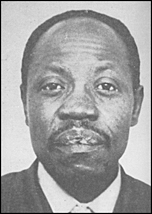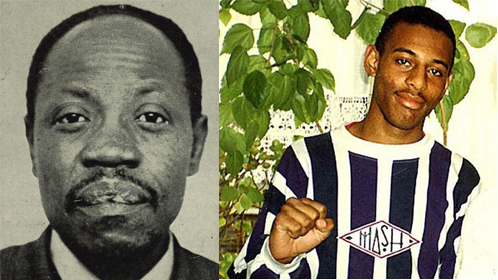Tomorrow, on 4 May, it will be forty-nine years since the body of David Oluwale was pulled from the River Aire, Leeds in 1969. And nearly two weeks ago, the twenty-fifth anniversary of the racist murder of Stephen Lawrence in 1993 was marked.
Both deaths were watershed moments and synonymous with racism in different ways.
The twenty-fifth anniversary of the racist murder of Stephen Lawrence was recently marked in many ways, and rightly so — the murder and its subsequent impact on British race relations is immeasurable. But it took Stephen’s family years of fighting long and hard, with their supporters and lawyers, to challenge the state to act. As a result, just two of Stephen’s racist killers were convicted in 2012 – after the law on double jeopardy was changed.
 The death of David Oluwale, on the other hand, has overwhelmingly slipped from memory. He didn’t really have anyone to fight his corner and to remember him.[1] David from Nigeria arrived in the UK in Hull in September 1949 and died twenty years later after living on the streets of Leeds. He was hounded[2] to his death by two police officers (Inspector Geoff Ellerker and Sergeant Ken Kitching). His death is significant as two police officers were later prosecuted and convicted for involvement in his death and the campaign of harassment that they carried out against him.[2] These convictions are historic as it was the first and last time that police officers have been successfully prosecuted for involvement in a black death. That’s nearly fifty years ago! For families of those who die at the hands of the police, rather than racists, there is a long way to go to ensure justice.
The death of David Oluwale, on the other hand, has overwhelmingly slipped from memory. He didn’t really have anyone to fight his corner and to remember him.[1] David from Nigeria arrived in the UK in Hull in September 1949 and died twenty years later after living on the streets of Leeds. He was hounded[2] to his death by two police officers (Inspector Geoff Ellerker and Sergeant Ken Kitching). His death is significant as two police officers were later prosecuted and convicted for involvement in his death and the campaign of harassment that they carried out against him.[2] These convictions are historic as it was the first and last time that police officers have been successfully prosecuted for involvement in a black death. That’s nearly fifty years ago! For families of those who die at the hands of the police, rather than racists, there is a long way to go to ensure justice.
Related links
Read an IRR review of The Hounding of David Oluwale
Read an IRR review of the play on David Oluwale

